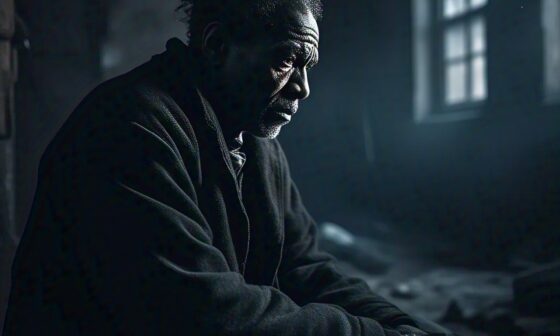I will like to put it like this: There is a powerful urgency in Paul’s words in Ephesians 5:15-19:
Be very careful, then, how you live, not as unwise but as wise, making the most of every opportunity, because the days are evil. Therefore, do not be foolish, but understand what the Lord’s will is. Do not get drunk on wine, which leads to debauchery. Instead, be filled with the Spirit, speaking to one another with psalms, hymns, and songs from the Spirit. Sing and make music from your heart to the Lord, always giving thanks to God the Father for everything, in the name of our Lord Jesus Christ.
Ephesians 5:15-19
This passage is not just a moral command; it is a spiritual blueprint for intentional living, a call to walk with wisdom, purpose, and gratitude in a world that constantly tempts us toward distraction and waste.
“Be very careful how you live” – The Art of Mindful Walking
Paul begins with a warning that feels timeless: “Be very careful, then, how you live, not as unwise but as wise.”
The phrase be careful does not mean to live fearfully, but to live mindfully, to walk with open eyes. Life moves fast; our days can be easily swallowed by noise, routine, and endless busyness. So wisdom, then, is not just knowledge, but awareness; the ability to see the spiritual weight behind everyday choices.

A wise walk is a measured one, guided not by impulse but by intention. Every step, every decision, every relationship will become an opportunity for you to reflect God’s will and grace. To walk carefully is to walk consciously, aware that how we live speaks louder than what we say we believe.
“Making the most of every opportunity” – Time as a Sacred Trust
“Because the days are evil,” Apostle Paul says, “we must redeem the time” (as some translations put it).
The phrase “redeeming the time” means to buy it back, to treat time like a currency that must be invested wisely, not wasted carelessly. And in today’s world of distraction, every moment spent on things that do not build, bless, or grow us spiritually is a missed opportunity.
The Stoics spoke of memento mori, remember that you will die, as a way to remind themselves of the shortness of life. Apostle Paul is making a similar point: The days are fleeting, the world is corrupt, and if we are not careful, the evil around us will consume the good within us.
So, the wise redeem their time; they rise early not just to get ahead, but to give thanks. They slow down not out of laziness, but out of awareness. They make time for people, prayer, and purpose because these things outlast everything else.
“Understand what the Lord’s will is” – Wisdom Requires Alignment
It is not enough to be busy; one must be busy about the right things. Paul continues, “Therefore do not be foolish, but understand what the Lord’s will is.” The foolish person runs tirelessly toward goals that have no eternal weight; the wise seek understanding, not mere success, but very very much in alignment with God’s will.
And this is the true difference between movement and progress. One can be constantly in motion and yet go nowhere spiritually. To live wisely is to pause, listen, and discern what God is doing in and around you. The wise understand that God’s will is not a mystery to decode but a path to walk in daily obedience and trust.
“Do not get drunk… Instead, be filled with the Spirit” – What Fills You, Leads You
Paul contrasts two kinds of filling: One that dulls the soul, and one that awakens it.
“Do not get drunk on wine, which leads to corruption. Instead, be filled with the Spirit.”
This is not just about alcohol; it is about anything that intoxicates us, numbs our awareness, or replaces divine fulfillment with temporary pleasure. Many of us are drunk on distraction, on approval, on comparison, on control, and on addiction.
But the Spirit-filled life is the opposite; it is one of clarity, not confusion; but of purpose, and not indulgence. To be filled with the Spirit is to allow God’s presence to shape how you think, speak, and respond to replace self-centered striving with Spirit-led living.
I recently saw a picture of a sculpture that was created by Thomas Lerooy based on an old Irish saying: First the man takes the drink, then the drink takes the man, and that is the reason for today’s article. You know when most people think of addiction and you might be one of them, they picture extreme cases like shaking hands, lost jobs, broken families, but the truth is that alcohol does not need to shatter your life to shape it. It is not just about getting drunk; it is about the slow erosion of clarity, purpose, and personal power, one sip at a time.
Alcohol affects the brain’s reward system, flooding it with dopamine and convincing you that you are relaxing, socializing, or coping more effectively, but another truth is that over time, the brain rewires itself to crave that shortcut to comfort, weakening your natural ability to deal with stress, joy, or sadness on your own. The drink starts as a choice, but again, over time, it becomes the one making the choices.
In small amounts, it seems harmless, but even moderate drinking can impair your judgment, and alter your emotional resilience. It trains you to reach for relief instead of resolve and while the change may be invisible at first, it is a quiet surrender of your mental and spiritual authority.
Continue Reading: First The Man Takes the Drink; Then the Drink Takes The Man
And when the Spirit fills us, gratitude follows, and this leads us to Paul’s final instruction and encouragement.
“Sing and make music from your heart to the Lord” – Gratitude as a Way of Living
The natural result of a Spirit-filled life is worship. Paul says, “Speak to one another with psalms, hymns, and songs from the Spirit. Sing and make music from your heart to the Lord, always giving thanks to God the Father for everything.”
This is not about musical talent but spiritual posture. Gratitude transforms how we live and love; it softens our hearts, steadies our minds, and tunes our spirits to God’s words, instructions, command, and frequency. Even in hardship, gratitude reframes our perspective, reminding us that every breath is grace, every moment is borrowed, and every day is a chance to begin again in wisdom.
Read Also: Who You Spend Time With Matters: The Power of Proximity
Read Also: The Law of Deliberate Practice: Turning Effort into Excellence
Read Also: From Demanding Better to Becoming Better: The True Path of Self-Respect
Conclusion
Apostle Paul’s message in Ephesians 5:15-19 is a timely reminder for us: Wisdom is not about knowing everything; it is about living purposefully in the little and big things.
To walk wisely is to treat time as holy, decisions as sacred, and relationships as divine assignments. It is to choose gratitude over grumbling, presence over distraction, and Spirit over self.
So today, my dearest readers, as you move through your routine, pause and ask yourself: Am I walking carefully? Am I redeeming the time? Am I filled with distraction, or with the Spirit?
So walk wisely, and you will live deeply! That is the beauty of a Spirit-filled life, simple steps that lead to eternal impact!





